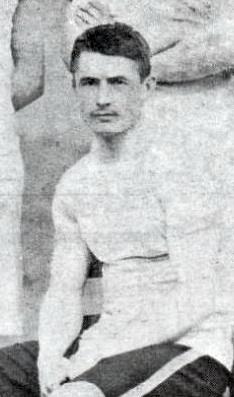1. Overview
Adolphe Jules Grisel was a prominent French athlete and gymnast who notably participated in the inaugural 1896 Summer Olympics held in Athens, Greece. His career, primarily centered around athletics and gymnastics, saw him achieve national recognition in France before making his mark on the international stage. Grisel was a versatile competitor, known for his success in events like the long jump and 400 metres hurdles at the national level. His Olympic appearance showcased his diverse athletic abilities, as he competed across multiple disciplines, embodying the spirit of early modern Olympians. Beyond his individual performances, Grisel is also remembered for his supportive gesture towards a fellow French athlete during the Olympic marathon. This article provides a comprehensive and balanced overview of his life and athletic achievements, reflecting the historical context of the nascent Olympic movement.
2. Life
Adolphe Grisel's life was marked by his dedication to sports, particularly during a pivotal era for modern athletics.
2.1. Birth and Death
Adolphe Jules Grisel was born on December 9, 1872. He passed away on December 13, 1942, though some sources indicate his death date as December 16, 1942.
2.2. Athletic Career
Grisel's athletic career began to flourish in the mid-1890s, leading to significant achievements in French national competitions before his Olympic debut.
2.2.1. Affiliation
From 1895, Grisel was affiliated with the Racing Club de France, a prominent sports club in France. This affiliation marked a period of intense training and competition for him.
2.2.2. National Championships
Grisel demonstrated considerable talent in various track and field events at the French national championships. He was the French National long jump champion in 1896, achieving a jump of 20 ft (6.23 m). His success in the long jump extended beyond this victory, as he was also the runner-up in the event in 1893, 1895, and 1898, and secured third place in 1894. In addition to his long jump prowess, Grisel also proved his versatility by finishing as the runner-up in the 400 metres hurdles at the French national championship in 1895.

3. Major Activities and Achievements
Grisel's most significant sporting accomplishments are rooted in his participation in the 1896 Summer Olympics, where he competed in a wide array of events.
3.1. 1896 Summer Olympics Participation
At the 1896 Summer Olympics in Athens, Grisel was a busy competitor, participating in a total of five different events: four in athletics and one in gymnastics. The opening ceremony for the Games took place on April 6, 1896, the same day Grisel began his athletic competitions.
3.1.1. Athletics
Grisel competed in several athletics disciplines during the 1896 Games, often facing stiff competition and the early, evolving rules of modern Olympic sport.
3.1.2. Gymnastics
After a two-day break from competition, Grisel also took part in a gymnastics event.
3.1.3. Support for Albin Lermusiaux
Grisel concluded his participation in the Games with a notable act of sportsmanship. He supported his compatriot, Albin Lermusiaux, during the marathon event. Grisel accompanied Lermusiaux on a bicycle for a portion of the race, demonstrating camaraderie and support for a fellow French athlete. This act highlighted Grisel's enduring energy and spirit even after completing his own demanding schedule of events.
q=Panathenaic Stadium, Athens|position=right
4. Evaluation and Legacy
Adolphe Grisel's legacy is primarily tied to his role as a participant in the first modern Olympic Games. As an early Olympian, his multi-sport participation reflects the amateur ethos and broad athletic interests characteristic of the era. Despite not winning any Olympic medals, his consistent performance in national championships and his diverse engagement across multiple disciplines at the Games underscore his athletic talent and dedication. The limited official records for many events in 1896 mean that a full quantitative assessment of his Olympic performance is challenging. However, his presence and effort, particularly his act of support for Albin Lermusiaux, contribute to the historical narrative of the pioneering spirit of the 1896 Athens Olympics.